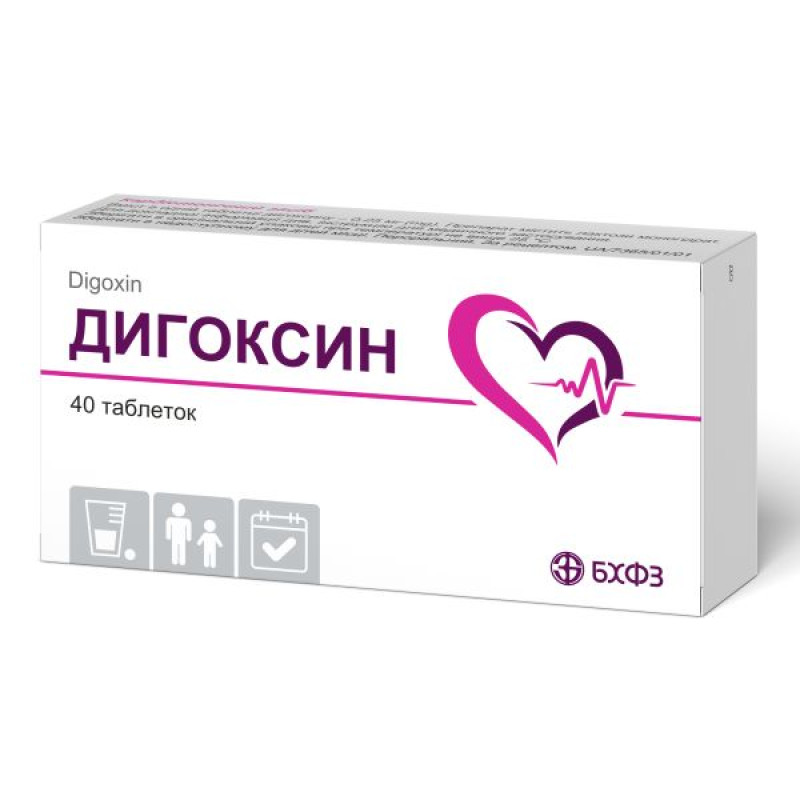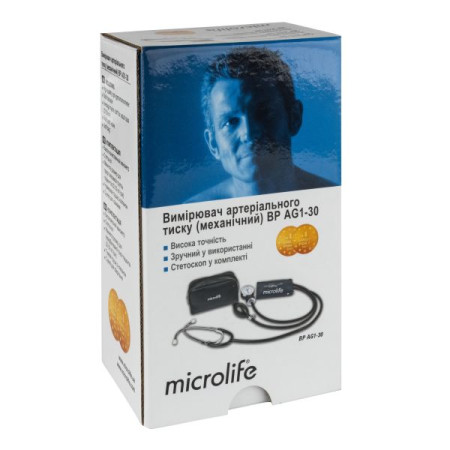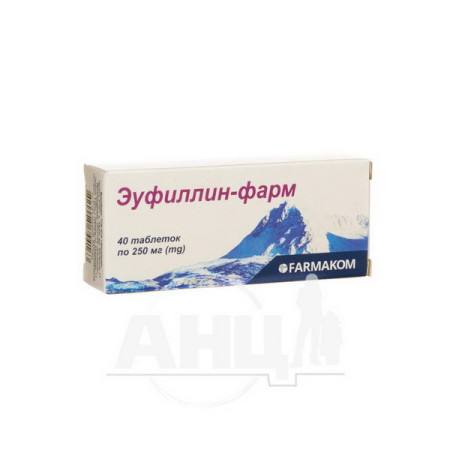Digoxin tablets 0.25 mg blister No. 40

Pharmacological properties
Cardiac glycoside. has a selective effect on the heart, due to the presence of a sugar-free part in the molecule - aglycone. has a complex mechanism of action, due to the transport of Ca2 + / Na +, the effect on the catecholamine system and other regulatory systems. digoxin is characterized by pronounced positive inotropic and relatively strong negative chronotropic and diuretic effects. specific cardiotonic effect when taken orally, as a rule, manifests itself after 1-2 hours and reaches a maximum within 8 hours. digoxin is well absorbed in the digestive tract. relatively weakly binds to blood plasma proteins. a significant part (30%) is excreted through the kidneys.
Indication
Chronic circulatory failure of stages I-IIa and IIb, tachyarrhythmic atrial fibrillation, paroxysmal atrial fibrillation and supraventricular tachycardia.
Application
Inside. A single dose for adults is 0.25 mg (1 tablet). On the first day of treatment, the drug is taken 4-5 times with equal intervals between doses, i.e. the daily dose is 1-1.25 mg. On the next day, digoxin is taken in the same single dose 1-3 times. The effectiveness and dose of the drug depend on the ECG, respiration and diuresis. After achieving a therapeutic effect, digoxin is used in maintenance doses of 0.125-0.5 mg (1 / 2-2 tablets) per day.
The highest daily dose for adults when taken orally is 0.0015 g (1.5 mg).
For children, doses are selected strictly individually. The loading dose is approximately 0.05-0.08 mg per 1 kg of body weight; the specified amount of the drug is administered over 1-2 days (rapid digitalization), over 3-5 days or over 6-7 days (slow saturation).
Contraindication
Various heart blocks, angina (use possible only in heart failure), intoxication were previously treated with digitalis preparations.
Side effects
In case of an overdose of the drug, nausea, vomiting, anorexia, diarrhea, slowing of conduction in the heart, bigeminia, headache, insomnia, anxiety, depression, visual impairment. In case of coronary heart disease with atherosclerotic lesion of the coronary vessels, angina attacks or deterioration of the patient's condition are possible, due to an increase in cardiac stroke volume and an increase in myocardial oxygen demand, which is eliminated by antianginal agents from the group of calcium ion antagonists. In case of ventricular tachycardia, taking digoxin increases the risk of ventricular fibrillation. In case of intoxication caused by an overdose of the drug, but if its prolonged use is necessary, a break is made, the duration of which depends on the severity of the clinical picture of intoxication.
Special instructions
Use with caution in active myocarditis, severe bradycardia, acute coronary insufficiency (especially in acute myocardial infarction with ventricular extrasystole).
When treated with Digoxin, the patient should be under close medical supervision. For long-term therapy, the optimal individual dose of the drug is usually selected within 7-10 days. If necessary, the use of strophanthin is prescribed no earlier than 24 hours after the withdrawal of Digoxin. When using Digoxin and isaluretics simultaneously, the appointment of potassium preparations is indicated. In renal failure, the dose of Digoxin is reduced by approximately 2 times.
Interactions
When taken orally, it is incompatible with drugs containing metal salts, tannins, acids and alkalis.
Overdose
In case of poisoning, the stomach is washed with a suspension of activated charcoal or other enterosorbents, these agents are prescribed orally, and a saline laxative is also given. If arrhythmia occurs, 2-2.4 g of potassium chloride with 10 units of insulin in 500 ml of 5% glucose solution is administered intravenously drip (the administration is stopped when the potassium concentration in the blood plasma is 3 mEq / l). Potassium-containing agents are contraindicated in cases of AV conduction disorders. In the absence of an antiarrhythmic effect of potassium preparations, phenytoin is slowly administered intravenously (0.0005 g per 1 kg of body weight) at 1-2 - time intervals. In case of severe bradycardia, a solution of atropine sulfate is administered. Oxygen therapy is indicated. Unithiol is also used as a detoxification agent. When the blood pressure is reduced, transfusion therapy is used.
Storage conditions
In a place protected from light.
There are no reviews for this product.
There are no reviews for this product, be the first to leave your review.
No questions about this product, be the first and ask your question.













